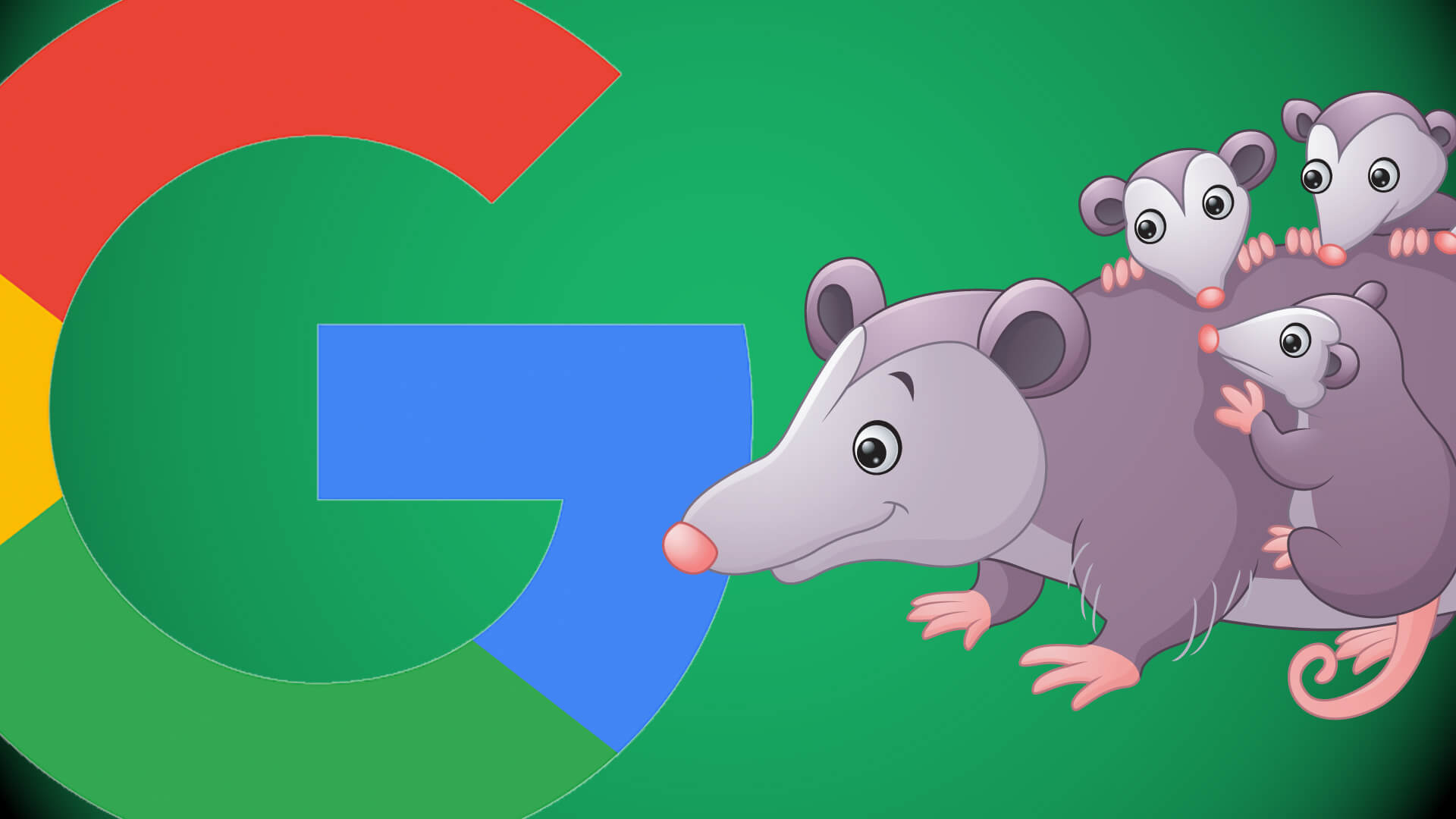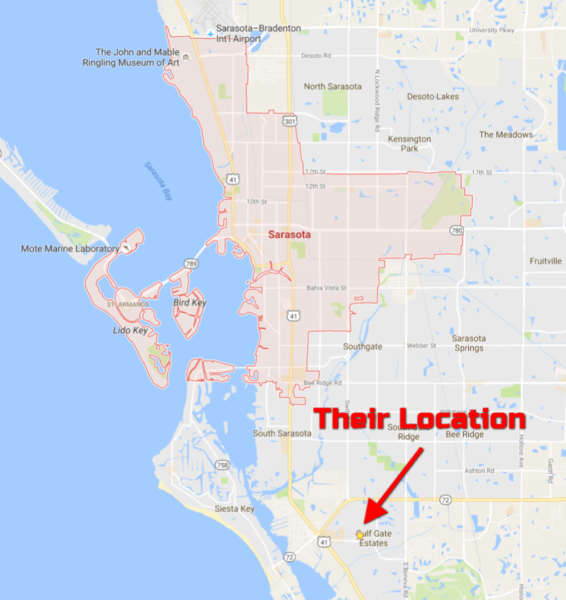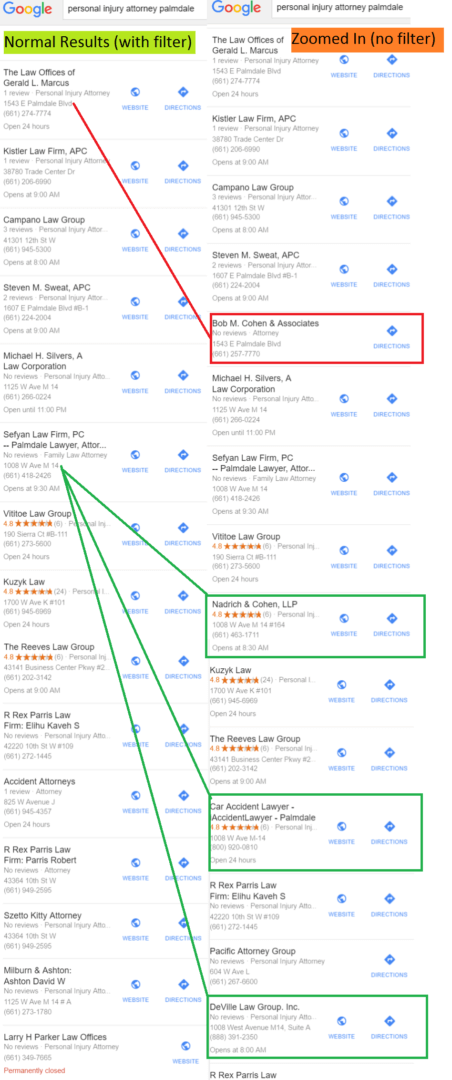Everything you need to know about Google’s ‘Possum’ algorithm update
Wondering what's up with local search rankings lately? Columnist Joy Hawkins has the scoop on a recent local algorithm update that local SEO experts are calling 'Possum.'

For those of you wondering what “Possum” is, it’s the name we in the local search community decided to give the massive Local algorithm update that happened September 1, 2016.
Phil Rozek suggested the name, pointing out that it is fitting since many business owners think their Google My Business listings are gone, when in fact they are not. They have just been filtered — they’re playing possum.
What was the update?
All the evidence seems to indicate this particular update only impacted ranking in the 3-pack and Local Finder (AKA the local results or Google Maps results). There is talk of another update that happened right after, which impacted organic results.
I believe the main purpose of the update was to diversify the local results and also prevent spam from ranking as well.
Based on the dozens of ranking reports I’ve analyzed, I would say this is the biggest update we have seen in Local since Pigeon in 2014. One of the main things that updated was Google’s filter that applies to the local results.
The specifics
1. Businesses that fall outside of the physical city limits saw a huge spike in ranking.
I wrote earlier this year about a problem we face in Local SEO where, if a business falls right outside the physical city limits for a particular city, they have a seriously hard time ranking for any keywords that include that city name. These businesses often don’t even fall into a city “technically,” according to Google Maps.
After this update, many businesses like this saw massive increases in their local ranking. Here is an example.
Direct Inspections was a business in Sarasota that I did a consultation for recently. They really wanted to rank for keywords like “home inspector sarasota.” They fell outside of the physical borders of Sarasota and were technically in a census-designated place (CDP) called Gulf Gate Estates. Like most of these cases, their mailing address is in Sarasota.
On August 6, they ranked #31 locally for “Home Inspector Sarasota,” and I came to the conclusion that ranking for keywords like that was a lost cause without an address inside the physical city limits. We have lots of clients in this scenario and have seen that even after years of doing the right things, their local ranking just doesn’t budge for those types of keywords.
After the update, their ranking jumped to position 10 (Yes, an increase of 21 positions). We saw the exact same patterns for all other businesses we tracked that fell into this category.
2. Google is now filtering based on address and affiliation.
Previously, we would often see a local filter applied to the local results that filtered out profiles that shared a similar phone number or domain.
For example, you might have a chiropractor office that has three separate listings for individual practitioners and then one listing for the practice itself. These separate profiles would all link to the same website and use the same phone number. Usually, only one or two of these would show up in the local results, and the others would be filtered.
This makes sense, as Google regularly filters duplicate content organically, and showing their users tons of results from the same company isn’t necessarily what’s best for users. When you are searching for a new dentist, do you really want to see the same office listed several times?
Since this update, we are seeing a lot of businesses filtered out due to the address of the business being the same as another listing in their same category (same type of business). Here is an example.
You search “personal injury attorney palmdale,” and you get 16 results in the Local Finder. There are at least five listings using the address 1008 W Ave, Palmdale, CA, that are all personal injury attorneys. Currently, one is showing in the Local Finder and the other four are filtered:
- Stefyan Law Firm — showing
- DeVille Law Group Inc — filtered
- iAccidentLawyer — filtered
- Nadrich & Cohen — filtered
- Wilshire Law Firm — filtered
Broland over on the Local Search Forum pointed out that you can see the filtered listings if you just slightly zoom in on the map in the Local Finder. When I do that for this query, I now get 61 results — and most of the filtered results I referenced above are now showing.
In another case I looked at, a business owner had two listings that were named differently, had different phone numbers, different websites and different addresses. We tracked his ranking daily and used a tracker by BrightLocal that also took screen shots of the search results every day.
Each day that one listing showed up, the other did not. They kept flipping back and forth but never appeared together at the same time.
At first, I was confused at the connection because their entire Name, Address, Phone number (NAP) profile was different. The client then explained that they are technically in the same building even though they have different addresses. The address varies based on which side of the street you come in on.
This information helped me confirm that Google is a bit more sophisticated than just looking at the address you enter in Google My Business (GMB).
(On that note, many have tried to escape the filter by simply adding a suite number. This has not worked on any case I’ve looked at.)
In another case, it got even crazier. There is a dentist I work with who owns two different practices. They are both on the same road but have completely different addresses and are not in the same building. They have different NAPs, different doctors, the sites aren’t hosted together, and they are not claimed in the same Google account. The only connection is that he owns both, and technically, the parent company that owns both is what would be listed on their business license.
I’ve known for a while now that Google often asks for business licenses when business listings get suspended, but it seems now that Google really knows a lot more about who owns multiple companies in the same industry than I suspected.
In the case of this dentist, his two practices used to both rank in the 3-pack for various keywords. Currently, I cannot get them to trigger together. Based on what I type in, I get either one or the other.
Keep in mind, this filter is not the same as a penalty. Google isn’t removing the listing or preventing it from ranking for anything at all. Instead, it works much like the organic filter, which picks the “best” and most relevant listing and filters others that are too similar.
I often see different listings ranking for different keywords, so while the law firm’s listing ranks for “personal injury attorney,” the individual lawyer’s profile might rank instead for “motorcycle accident attorney” if it had more relevance (like reviews that talk about motorcycle accidents).
3. The physical location of the searcher is more important than it was before.
A company contacted us for a consultation, worried about this algorithm update. They noticed that a ton of their locations were no longer ranking in the 3-pack. When we looked into it, it turned out that since they were searching from their head office in Alabama, they were seeing something totally different than a user down in Texas, where one of the businesses was located.
The business was in Richland Hills, Texas, and the farther away you got from the city when searching, the more zoomed out the map got, and the more the listing dropped in ranking as a result. They were seeing the business as being seventh on the list for a [service + city] keyword in Alabama, whereas a user in Richland Hills, Texas, would have seen the listing as first.
It seems that since this update, it’s more important than ever to make sure the searcher location is set to the right city when tracking ranking. A tool that allows you to do that is this one by Bright Local.
4. Search results vary more based on slight variations of the keyword searched.
I’m seeing lots of reports of variations of the 3-pack based on slight keyword variations. Previously, you would often see fairly similar results if you typed in “Los Angeles Chiropractor” or “Chiropractor Los Angeles” or “Chiropractor Los Angeles CA.”
Since the update, we are seeing a lot more fluctuation between similar keywords. In some cases, I’ve looked at a listing that was filtered for one query but then appeared back in the local results if you added the state abbreviation to the keyword.
5. The local filter seems to be running more independently from the organic filter.
In the past, we used to find that if Google filtered out your website organically (or filtered out the specific page that you were linking your listing to), this had a negative impact on ranking.
Since the update, I’ve seen tons of examples of businesses that rank very high for competitive terms that are linking to pages that are filtered organically.
One case I looked at was a cleaning company that had multiple sites. One of the sites is getting filtered everywhere organically because it is too similar to another of the sites (which shows organically). The client happened to be linking the local listing to the site that was filtered, which historically has been known to tank ranking.
After the update, the client saw a massive spike in the ranking, even though the URL he was using on his GMB listing was a page that was filtered organically.
Another example was a business that ranked twice after the update. They have two listings on Google for the same business, and before the update, only one of them ranked in the 3-pack (The other would have been filtered). The difference between the two listings is that one links to the www version of their website and the other listing just goes to the https://domain.com version (no www).
Organically, Google is smart enough to realize this is the same site (One version does not 301 to the other, so it is set up incorrectly), and Google hasn’t indexed both versions, but this is another example of how the local filter and the organic filter seem to be completely different and less connected than they were before.
Summary
In summary, we are still seeing a lot of fluctuation, which is making me think Google is still A/B testing various ranking signals. Ranking trackers like Algoroo are still showing a lot of fluctuation in the search results. It’s possible that some of the things they changed could revert back as well.
So far, the filter seems to be holding steady, but I’m still evaluating more and more cases to see additional patterns.
Got examples you want to share? Post them over at the Local Search Forum. You can also check out the webinar I did on Possum recently with Mockingbird Marketing.
Contributing authors are invited to create content for Search Engine Land and are chosen for their expertise and contribution to the search community. Our contributors work under the oversight of the editorial staff and contributions are checked for quality and relevance to our readers. The opinions they express are their own.
Related stories
New on Search Engine Land


